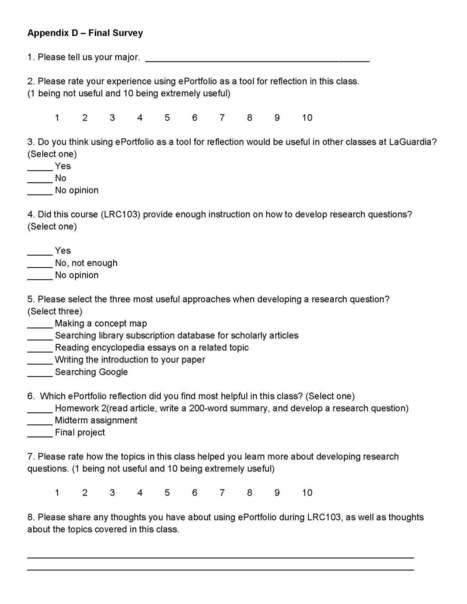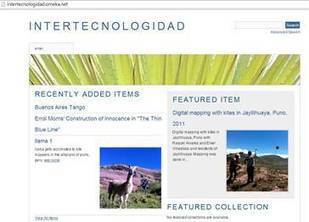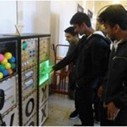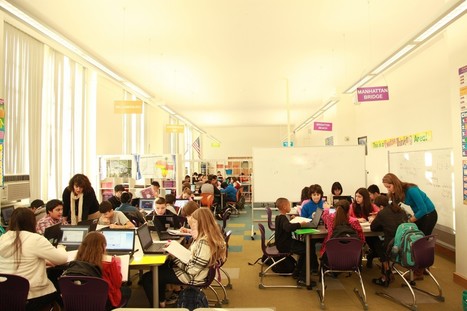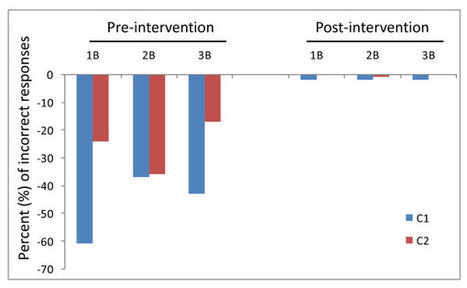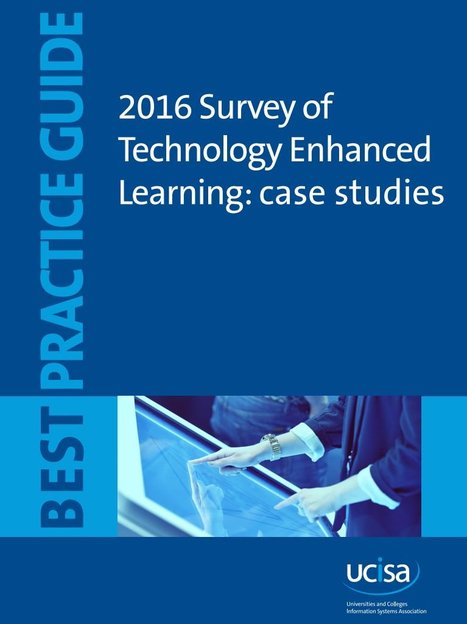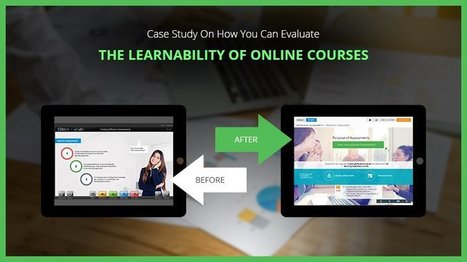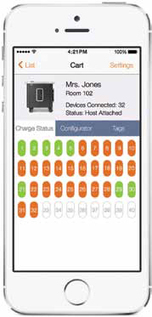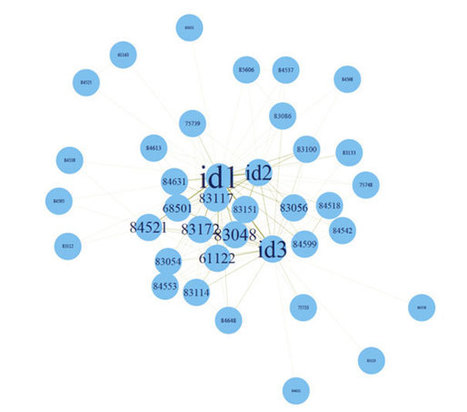There is a series of "case studies" on the CILIP Information Literacy website, with librarians describing how they have shifted IL teaching online. So far there are contributions from: Delyth Morris (Subject Librarian for Medicine at Cardiff University); David Bedford (Academic Support Librarian at Universities at Medway); Sarah Smyth (Assistant Librarian at Ulster University); Lesley English (Faculty Librarian (Teaching and Learning) at Lancaster University); Eleanor Barker and Veronica Phillips (Medical Library at the Un
Get Started for FREE
Sign up with Facebook Sign up with X
I don't have a Facebook or a X account

 Your new post is loading... Your new post is loading...
 Your new post is loading... Your new post is loading...
Current selected tag: 'case studies'. Clear
How can digital technology help you achieve a truly transformative student experience? How do you develop the strategic vision, practices and infrastructure to make that happen?
The Internet has changed contemporary workplace skills, resulting in a need for proficiency with specific digital, online and web-based technologies within the fields of medicine, dentistry and public health. Although younger students, generally under 30 years of age, may appear inherently comfortable with the use of technology-intensive environments and digital or online search methods, competence in information literacy among these students may be lacking.
The following case study investigated the efficacy of Information Literacy (IL) pedagogy on undergraduate research in a credit-bearing library instruction class. More specifically, the study analyzed student success and sought to determine whether written reflection and practice strengthen IL skills, including the fundamental ability to develop a research question and thesis statement. Developing research questions and formulating thesis statements are among the most challenging duties of a young researcher. From high school through undergraduate, students often have minimal experience conducting research. They may not know where to begin the research process and what steps are necessary. Student frustration is exacerbated by the fact that typically IL instruction is one-shot guidance, given only once in a semester, making it difficult for a librarian to cover all that is needed. Can a semester long, credit-bearing course aid student success in research and improve IL skills? The instructors introduced several techniques to improve IL skills, and instructors evaluated three class assignments based on their college’s core competencies. Additionally, instructors collected and analyzed students’ written reflections of their progress and an end of semester survey as both qualitative and quantitative data. 
custard_cottage's curator insight,
June 23, 2018 3:30 AM
Excellent article on feedback from an information literacy course. Can be adapted for schools.
This case study describes how an informal multi-professional collaboration emerged and, because of its shared expertise and openness effectively achieved acad…
Petra Hauptfeld-Goellner was involved in the project Academic Writing Online (AWO). The project’s aim was to develop an online course providing support for students in writing an academic paper or thesis. OEE interviewed her to find out more about the project and her experiences.
There are social media success stories all around us. Colleagues across the university have been early adopters, enthusiastic users and award-winning teachers of social media.
Key Takeaways
Technology can be a significant enabler in enhancing teaching, learning and assessment, but for some further education (FE) and skills providers the question is: where to start?
Jisc Digital Student Investigating students' expectations of the digital environment Exemplars Following a call in November 2014, we identified almost 50 exemplars of effective practice in support of students’ digital experiences in Higher Education. The exemplars have been written up with the support of the staff (and in some cases students) involved. They can be accessed via the seven challenges for institutions, or you can browse the whole set below. They are organised according to the main challenge addressed.
Aaron Chatterji and Benjamin Jones argue that the lack of rigorous evaluation currently available for educational technology tools must be addressed and articulate general principles that should guide the evaluation of educational technology. These evaluations have the promise to fill in critical information gaps and leverage the potential of new technologies to improve learning. They also present a case study of a new platform, EDUSTAR, conceived by the authors and implemented with a national nonprofit organization.
Earlier this year, we had the good fortune of catching up with Dr. Bryan McCabe, a lecturer in Civil Engineering at NUI Galway. Bryan has been re-configuring his pedagogic approach, by giving students exposure to lecture materials out of class through lecture videos and quizzes.
When a computer runs a classroom, is it more efficient? Do kids learn more? A middle school in New York is finding out. Via Nik Peachey
June Rumiko Klein's curator insight,
September 5, 2015 7:16 PM
In all new technology, a successful implementation in the organization is the key ingredient to success. A poor implementation does not mean the technology doesn't work. A systems approach, with many adjustments for why "something failed" or didn't in all cases, will help to fine tune implementations. Root cause analysis is key to avoiding reacting only to symptoms. To do this type of analysis during and after implementation requires resources and leadership at the top. 
Julie Jackson's curator insight,
September 28, 2015 8:36 PM
This is a very controversial issue within our school district between the district and parents. I hope this article will help our parents and staff have a better understanding of what blended learning incorporates into the classroom. |
LIBER’s Research Data Management Working Group has published two case studies showcasing research data management support provided by the Delft University of Technology (TU Delft) and the University Library at The Arctic University of Norway (UiT).
The UK Higher Education Learning Space Toolkit was launched in 2016 to help staff from different professional services share best practice and work more effectively when creating learning spaces.
Background
Methods
An inspiring event that showcases global excellence and ambition in library service, the tour aims to share best practice, and inspire professionals across the world.
Predictive analytics help Oklahoma enroll largest, most academically prepared, class ever Via EDTECH@UTRGV
Survey of Technology Enhanced Learning
How can skills providers make the most of digital technology to support their learners to gain employment and progress in their careers?
Before outlining the case study that will illustrate how you can evaluate the learnability of online courses, I recap a few essential aspects from my previous article How To Predict And Measure The Learnability Of Online Courses.
Change Agents' Network A network of staff and students working in partnership to support curriculum enhancement and innovation
Some educators express fear about the shift to e-learning courses and whether they produce the desired results for their students. However, a recent national survey of schools working with The Virtual High School, a provider of online learning programs, found that 95 percent of the teachers, students, and administrators participating were satisfied with the online courses offered through VHS. How are other blended learning models achieving similar success around the country? Below are snapshots from schools that are making blended work.
Online fora have become not only one of the most popular communication tools in e-learning environments, but also one of the key factors of the learning process, especially in distance learning, as they can provide to the students involved, motivation for collaboration in order to achieve a common goal. The purpose of this study is to analyse data related to the participation of postgraduate students in the online forum of their course at the Hellenic Open University. The content of the messages posted is analysed by using text mining techniques, while the network through which the students interact is processed through social network analysis techniques. Furthermore, sentiment analysis and opinion mining is applied on the same dataset. Our aim is to study students’ attitude towards the course and its features, as well as to model their sentiment behaviour over time, and finally to detect if and how this affected their overall performance. The combined knowledge attained from the aforementioned techniques can provide tutors with practical and valuable information for the structure and the content of the students’ exchanged messages, the patterns of interaction among them, the trend of sentiment polarity during the course, so as to improve the educational process. Via Miloš Bajčetić
Purdue University has a number of sets of material that they have developed to teach data information literacy in different subject areas. "Each of the DIL case studies includes a description of the educational program and any accompanying supporting materials such as syllabi, lesson plans, rubrics, exercises or other learning objects. |





